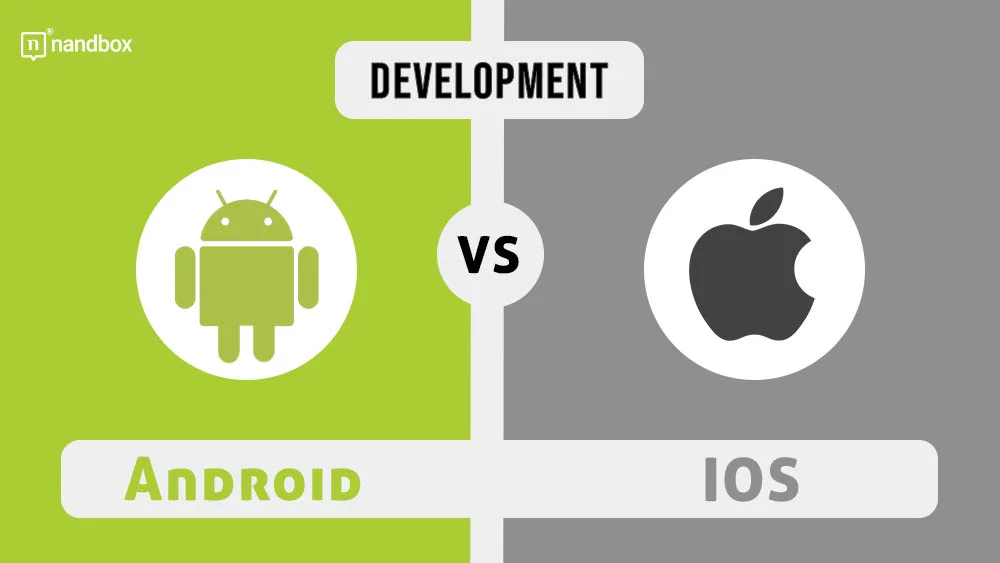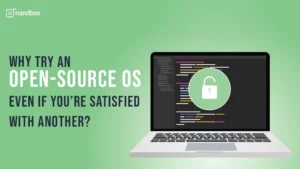Choosing Your First App Development Platform in 2023: Android or iOS?
Since you are here, that means that you have finally made up your mind and want to develop an app. This is the first step towards a journey filled with decision-making and choices that you will have to make. Intimidated? Don’t be. Because in this guide, we will help you make the right decision. This decision will depend on whether you choose which platform to develop your app on first. You have to choose between Android and iOS development. Trust the process and read below to know the benefits, costs, and developmental details of each platform. When it comes to mobile app development, choosing the right platform can make all the difference. With the continued growth of the industry, it’s important to prioritize your app’s platform. The one that will give you the best chance of success. As we mentioned above, this guide compares the pros and cons of developing for Android vs. iOS in 2023. That is to help you make an informed decision about which app to develop first. There are several elements to consider, and this is exactly what we will be discussing and comparing.
When deciding between Android and iOS development, it’s important to consider market share and user demographics. Android has a larger market share globally, with over 72% of the market compared to iOS’s 27%. However, iOS users tend to have higher incomes and spend more money on apps. Which makes it a more lucrative platform for developers. Additionally, iOS users are more likely to be located in developed countries. On the other hand, Android users are more prevalent in developing countries. Consider your target audience and their spending habits when deciding which platform to prioritize. The Android platform may seem like the logical choice. That is when considering only demographics, but this may not always be the case. Simplicity and ease are good for everything. However, you have to put all aspects of your research into consideration to make the right decision.
Android vs. iOS Development: The Time and Cost Spent
Another important factor to consider when deciding between Android and iOS development is the time and cost involved. Developing for iOS can be more expensive and time-consuming. Due to the need for specialized hardware and software, as well as the strict app review process. For example, submitting an iOS app can actually take up to one month to be approved. Additionally, at the slightest error, your app may get rejected due to their strict review.
On the other hand, Android development can be more flexible and cost-effective. As it supports a wider range of devices and development tools available. The app submission process takes around three to four days, specifically. Furthermore, you have a better chance of publishing your app on the Google Play Store than on Apple’s App Store. Consider your budget and timeline when deciding which platform to prioritize.
Another major point of comparison is the number of times you can update your app on both stores. While an app on the Android platform can theoretically be updated at any time and with an endless number of times. App upgrades on the iOS app store are only permitted three to four times per month. Which takes us to the next point.
App Store Approval Process
One major difference between Android and iOS development is the app store approval process. Apple has a strict review process that can take several days or even weeks to complete, while Google’s process is generally faster and more lenient. This means that, like we mentioned above, iOS apps may take longer to get to market, but they are often more polished and reliable. For example, you will find that on the App Store, there are much fewer apps with glitches or bugs. Android apps, on the other hand, may be released more quickly but may have more bugs or compatibility issues. It’s important to factor in the app store approval process when deciding which platform to prioritize for your app development.
Android vs. iOS Development: Monetization Options
Another important factor to consider when deciding between Android and iOS development is the monetization options available on each platform. Both platforms offer in-app purchases and advertising as ways to generate revenue, but there are some differences. For example, iOS users tend to spend more money on in-app purchases than Android users, but Android has a larger market share overall. Additionally, Apple takes a 30% cut of all in-app purchases, while Google takes a 15% cut for the first $1 million in revenue and 30% after that. It’s important to weigh these factors when deciding which platform will be more profitable for your app.
Android vs. iOS Development: UI Development and Design

iOS is often far more UI/UX-friendly than Android because of features like Interface Builder that are built into Xcode. Because iOS frameworks are so simple to use, developers can devote more time to creating wonderful experiences for their users.
Android is the best option if you value having access to a greater range of customization options for building and design. However, it should be remembered that all of this independence requires a lot more time. Additionally, the end-user usually doesn’t care how fancy the back end is; they only care that it functions positively in a clear and understandable way.
However, it should be noted that Google’s design principles for producing easier-to-use, better-designed apps for Android platforms, Material Design, were unveiled at the 2014 Google I/O Developer Conference. Therefore, although not quite there yet, Android is on track to develop a more user-friendly development platform.
Future Trends and Predictions
As mobile app development continues to evolve, it’s important to stay up-to-date on future trends and predictions. One trend that is expected to continue is the rise of mobile commerce, with more and more consumers using their smartphones to make purchases. Another trend is the increasing use of artificial intelligence and machine learning in mobile apps, allowing for more personalized and efficient experiences. It’s also predicted that the demand for augmented reality and virtual reality apps will continue to grow. There is a theory that is trending nowadays that, at some point in the near future, the Metaverse that Facebook’s Mark Zuckerberg created will have actual people depending on their lives to be lived inside the Metaverse. Unbelievable, I know! Keeping these trends in mind can help you prioritize which platform to develop for and what features to include in your app.
When Should You Develop Android First?
If you wish to reach a larger audience globally. Additionally, if you wish to receive more app downloads, you can choose to design for Android first. You can take advantage of the best return on investment in these countries as more people utilize Android apps, especially if your target market resides in India, China, or the United Arab Emirates.
Developing the app for Android may be a better investment due to the increased number of Android users and downloads, if you are interested in advertising your app with in-app advertisements. Think about the features your target audience prefers as well as whether Android gives you more flexibility to integrate those features.
When Should You Develop iOS First?
When you want to create a minimum-viable product, iOS should be your first option. Additionally, as iOS is more popular in the USA and UK, it would be more suitable if the audience you are targeting resides in these countries.
Because iOS users are more likely to make in-app purchases, iOS is a better option if you want to monetize your apps without in-app ads and if you want to offer users free and premium versions of your app. The platform you select will therefore depend on the kind of app you want to make and the intended user base.
When Should You Develop an App for Both Platforms?
Both of these platforms are the best options if you want to enter the market head-on. You’re going in with both barrels, sure that your app will succeed. Usually, established businesses are the ones to make this leap. Since they have the resources to do so, it makes sense for them if we’re talking about not lacking any resources like money, time, or effort. Additionally, an app could create a stir on one platform but go unnoticed on another. Therefore, if you have the money, go for it. Your chances of success rise as your product becomes more widely available. The number of downloads for the app will increase as more people gain access to it.
To Conclude This Android vs. iOS Development Topic
In conclusion, we would like to state that both platforms are of great importance. They both have their pros and cons. Furthermore, each platform could actually benefit your business in a certain aspect depending on your features, budget, project management, and other app development factors to consider and research.
If your business is a startup and you aim to empower it with an app, we have a solution to offer you. Most developers or IT teams require too much planning, money, and effort. That is why we advise you to opt for a no-code app builder solution. Our app builder, nandbox, is a no-code native app builder that could help you develop apps supported by both the Android and iOS systems in a matter of minutes. You won’t need any prior knowledge of any programming or coding languages.
Our app builder guides you through a detailed documentation section that will help you understand the app builder’s features and modules. It will also show you how to configure some of the features and modules of your app, with screenshots and detailed explanations.
Upon signing up, a free trial will be activated for you in order to have a good time span to familiarize yourself with the app builder’s navigation process. Bring your idea to life with nandbox’s native no-code app builder and publish your app easily, either for Android or iOS!







